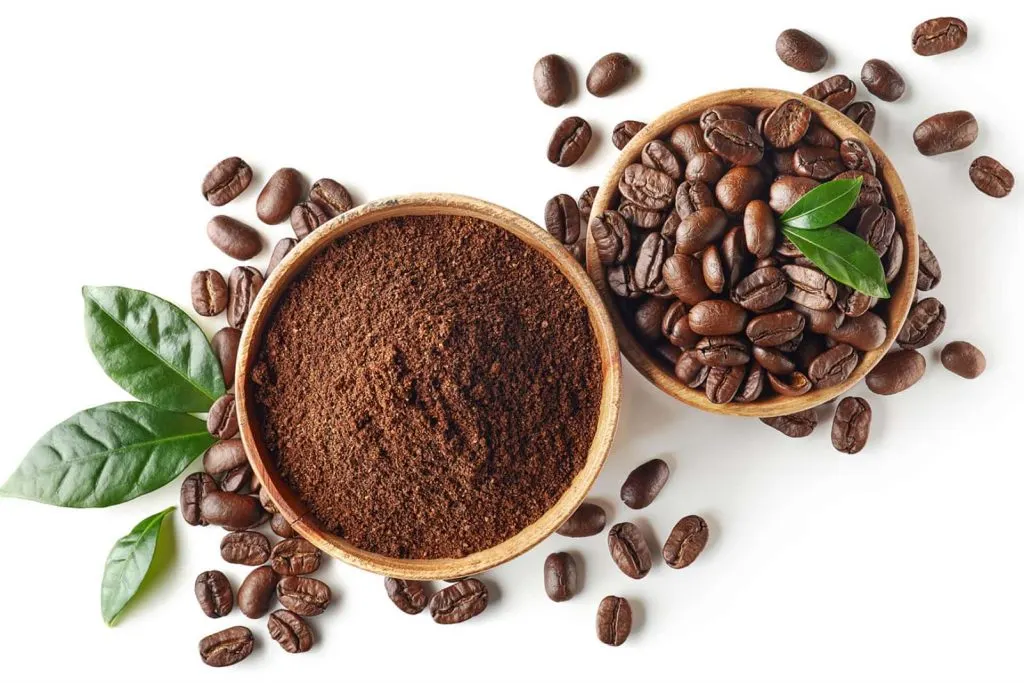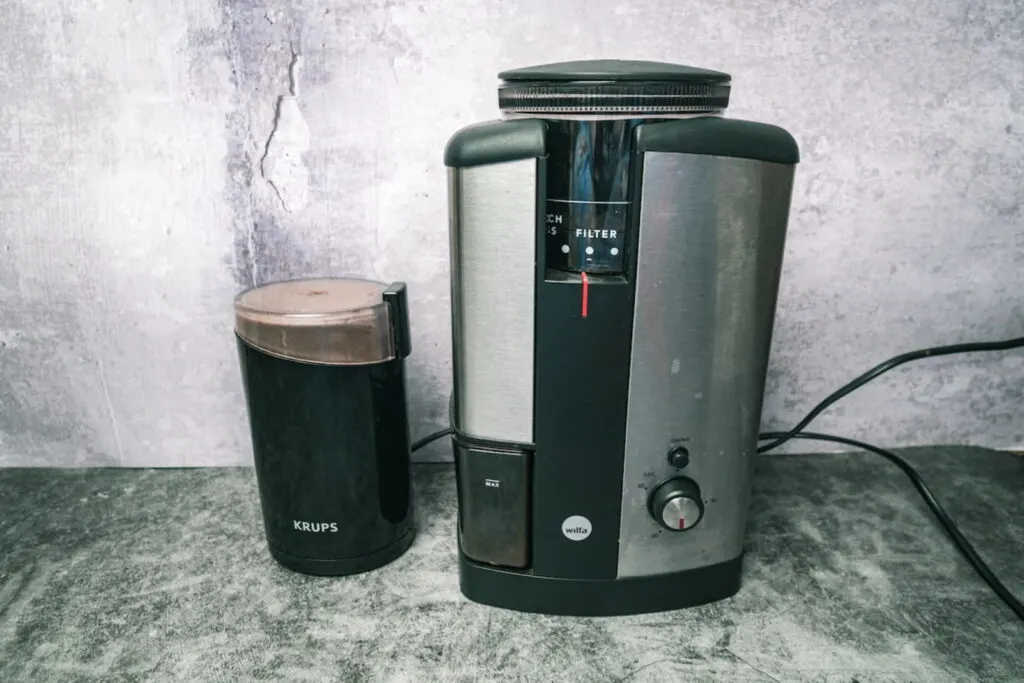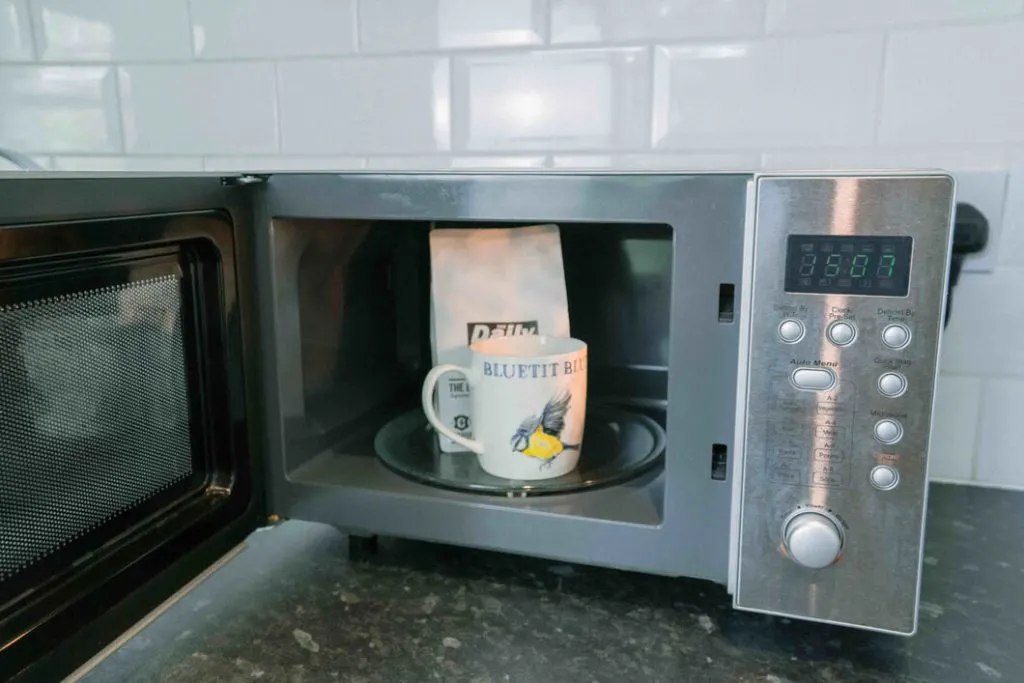Instant coffee was developed for people to make hot coffee quickly without a traditional coffee maker or French press. Most coffee drinkers make instant coffee by stirring in hot water or milk, right in the cup. People who use a French press to make coffee generally wouldn’t consider using instant coffee, though that doesn’t mean it’s out of the question.
Can you use instant coffee in a French press? Technically, the answer is yes—instant coffee can be used in a French press. However, both coffee lovers and manufacturers of French press machines don’t recommend using instant coffee. French press coffee makers and instant coffee, though technically compatible, are ultimately at cross purposes.
A majority of coffee drinkers will take their cups any way they can get it, whether it’s instant coffee mixed with hot water or speciality coffee drinks made by a barista. Most households have a traditional coffee maker that filters coffee grounds through the special paper with hot water into a pot.
Disclaimer: Hi! this post may contain affiliate links which will take you to online retailers that sell products and services. If you click on one and buy something, I may earn a commission, see my Affiliate Disclosure for more details.
Some coffee drinkers invest in a French press, which also brews coffee but by steeping grounds in water rather than filtering them through the paper. Using instant coffee in a French press is possible, but the result isn’t very tasty.
Instant Coffee and How It’s Used
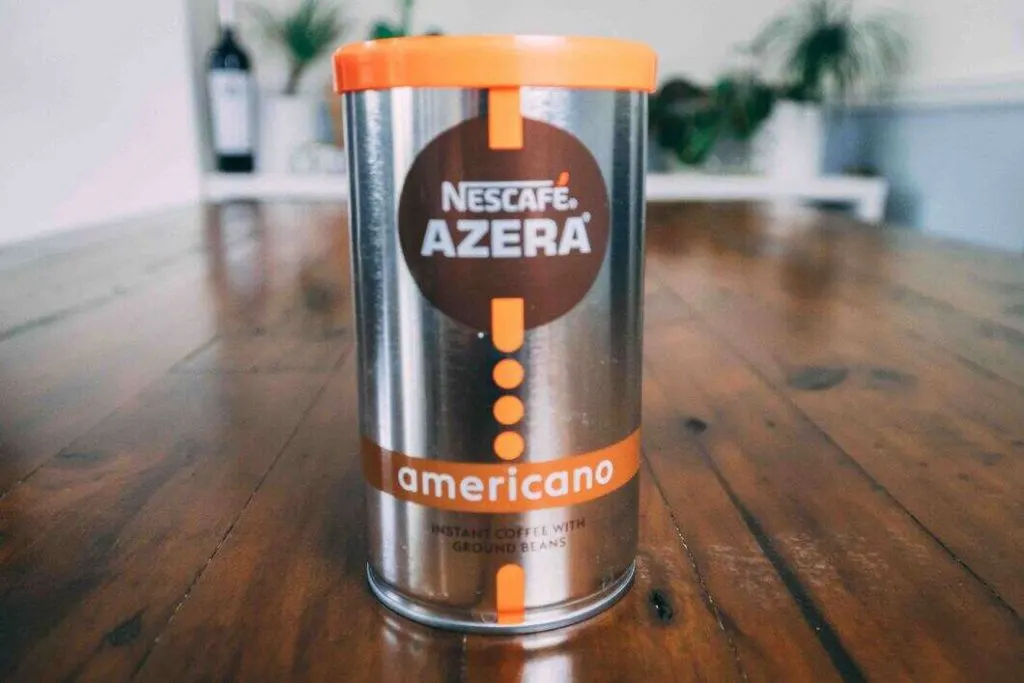
Instant coffee comes in the form of either coffee crystals or powder, and is prepared through these steps:
- Coffee beans are commercially dried, through either a freeze-drying or spray-drying process
- In freeze-drying, coffee extract is frozen and cut into granules, which are then gently dried at a low temperature to preserve aroma and flavour.
- In spray-drying, coffee extract is sprayed into a hot air stream which causes it to fall into a fine powder. The speed at which coffee is dried during this process preserves aroma and flavour.
- Resulting dried coffee is made soluble as either crystals or powder and sold as instant coffee
- Hot water or milk is added directly to the instant coffee, which rehydrates it
- Users stir the instant coffee and liquid together in the mug until they are incorporated
- Instant coffee is then ready to drink
The value of instant coffee is that it can be prepared without any coffee machine or press. It takes just minutes to make, and it can pretty much be enjoyed wherever there is hot water and a mug.
In addition to the speed of preparation, instant coffee is inexpensive and lasts quite a while if kept dry. There is also very little clean-up involved since there are no coffee grounds or filters required when using instant coffee.
Instant coffee is primarily found in make-it-yourself situations such as in hotel rooms and self-serve tables. There used to be a negative perception about instant coffee, that it’s lower quality for the fact that it’s cheap and “pre-brewed.” But instant coffee has improved over the years, both in production and flavour.
French Press and How It’s Used
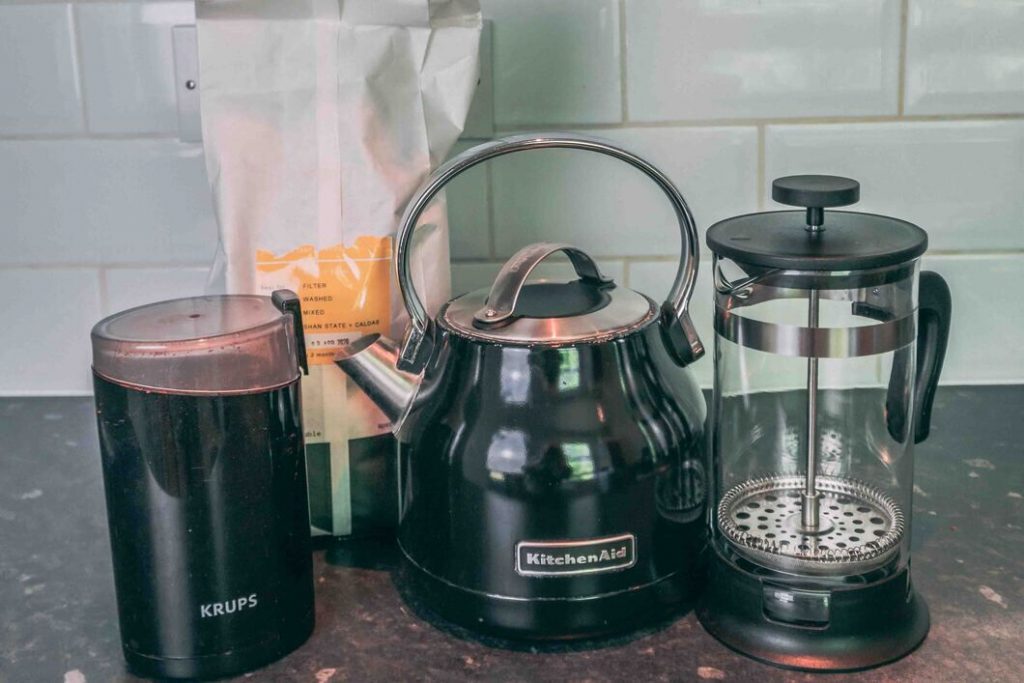
New coffee drinkers may be enticed by the idea of owning a French press and the accessories that go with it. There are several types of French press machines on the market, with a range of pricing. Often users are surprised at the amount of time it takes to make coffee in this way, and how long it takes to clean the press. However, many coffee lovers find that the results are well worth the effort.
French press coffee makers operate on an “immersion brewing” process in which coffee and water are steeped together. This differs from traditional coffee makers that operate on “drip brewing” in which water flows through coffee grounds and a filter.
Basic steps for using a French press to make coffee are:
- Heat water to not-quite-boiling
- Coarsely grind coffee beans or use purchased ground coffee
- For each cup to be made, add a couple of tablespoons of ground coffee to the machine
- Pour water over grounds in press and stir to immerse
- Steep for desired time (depending on taste)
- Use plunger to “press” coffee through mesh filter
- Pour and enjoy
The advantage of French press coffee is its stronger flavour and that it can be personalized to each person’s taste through steeping time. Users can vary the water temperature, type of coffee grounds, and strength of coffee flavour.
Instant Coffee in a French Press
Instant coffee can be used in a French press. However, instant coffee is not created to be used in a French press and vice-versa.
French press coffee makers are designed to immerse coarsely ground coffee beans in water. After steeping, the mixture is blended by pressing through a mesh filter to catch larger grounds.
Most French press users also own coffee grinders. They use these to grind purchased coffee beans to a texture they prefer, rather than buying commercially ground coffee. French press coffee calls for coarse coffee grounds to achieve the richest flavour.
Instant coffee is not coarsely ground whatsoever; it’s finely ground into crystals or powder. Additionally, instant coffee is not intended to be brewed or pressed. It’s designed to be dissolved in hot water or milk and then ready to drink.
How It Tastes
Coffee drinkers love both its smell and taste. Whether they take it black or add multiple sweeteners, the taste of coffee is what most anticipate and crave. And coffee flavour varies depending on how the grounds are prepared and brewed.
Some may wonder how instant coffee would taste when made in a French press. Essentially, it’s bitter.
Most coffee lovers agree that French press machines make the best tasting coffee when the beans are coarsely ground. The finer the coffee grounds, the more bitter the taste of French press coffee. Instant coffee is the finest of grounds and therefore would taste quite bitter made in a French press.
Most coffee drinkers find the taste to be somewhat bitter to begin with, which is why many people add milk, flavoured creams, and sugar to their brewed beverage. For many, the bitterness of instant coffee through a French press would be too much—regardless of what sweetener is added.
Instant Coffee in a French Press?
Coffee lovers have a wide variety of preferences as to how they want it prepared. But what they have in common is wanting their coffee as soon as possible. Whether it’s to help wake up in the morning, get energy during the day, or socialize with friends, few people prefer waiting for their cup.
This urgency may lead coffee novices to think that instant coffee would be quicker to prepare in a French press than coarsely ground coffee beans.
However, French press coffee makers are not designed for the level of speed. Instead, they are designed to immerse and steep coarse coffee grounds in water and the length of time depends on how strong the coffee drinker wants the flavour.
If someone desires coffee in an instant, the best way to get it is to prepare instant coffee as directed—mixed with hot water in a cup, not prepared in a coffee maker of any kind.
Additionally, if someone is in a pinch and instant coffee is the only thing available, it’s best to forego using a French press and prepare the instant coffee as intended. The taste will be much better than putting it through a press, and it will be ready faster.
Reasons to Not Use Instant Coffee in a French Press
There are three important reasons to not use instant coffee in a French press:
- Rehydration: instant coffee is made from commercially dried coffee beans. In addition, this type of coffee is already brewed, so when it’s combined with hot water the grounds are simply rehydrated and ready for consumption. Using instant coffee in a French press not only rehydrates the grounds but also re-brews them. This harms the flavour.
- Efficiency: instant coffee is designed to be efficient. Other than heating water and stirring, there is no effort in making it and almost nothing to clean up. French press coffee demands a little more preparation and time, though the results are worth it when done properly.
- Taste: Most coffee drinkers develop a taste for a particular strength and flavour. Much of that results from the way it’s prepared. Both instant and French press coffee are intended to be prepared in different ways to achieve strength and flavour. Using instant coffee in a French press negatively affects its taste.
Will Instant Coffee Ruin a French Press?
Instant coffee will not ruin a French press. If by some mistake, or experimental choice, someone uses instant coffee in a French press, the coffee machine will not be ruined. However, it’s important to know what potential problems a French press can pose for coffee lovers.
One complaint of French press coffee machines is the sediment found in the liquid. This sediment is made up of tiny coffee remnants that haven’t dissolved in the water, making the coffee slightly grainy.
Some experienced French press coffee drinkers feel that the sediment makes the coffee less acidic and gives it a more robust taste. Others feel that the grittiness of the sediment is uncomfortable in a cup of coffee.
Unfortunately, using instant coffee in a French press can increase the sediment present in the brewed liquid. This because instant coffee is so finely ground into crystals or powder. The particles slip right through the filter and into the coffee.
Some French press owners use a second strainer as a means of catching the sediment so it doesn’t end up in the coffee. However, instant coffee is ground so finely that a second strainer would hardly make a difference in preventing French press sediment.
Difference Between “Can” and “Should”
Ultimately, instant coffee can be used in a French press. But that doesn’t mean it should be.
One of the draws of using a French press is that it’s considered the purest way to make coffee. The draws of using instant coffee is that it can be done quickly and easily, without any coffee-making machine.
Coffee lovers should enjoy the benefits of French press as well as instant, just not together.


